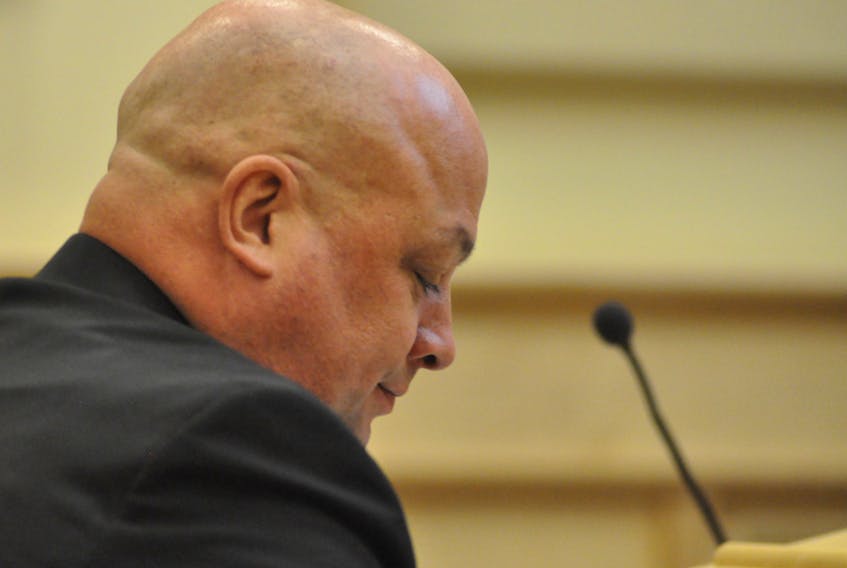A dispute between Tim Buckle and 61839 Newfoundland and Labrador, owners of the Humber Valley Resort, advanced a bit in the Supreme Court of Newfoundland and Labrador in Corner Brook last week.
Buckle and Keir O’Flaherty, solicitor for 61839, appeared before Justice Brian Furey on March 7 on an interlocutory application.
The application was filed by 61839 in December 2017 and asks that Buckle’s original application, filed in November 2017, be converted to a statement of claim so the matter can go to trial.
It follows another interlocutory application by the numbered company to have the matter moved from St. John’s to Corner Brook.
Buckle purchased a property on the resort in October 2011. Attached to the deed are a number of restrictive covenants, or provisions, Buckle is seeking to have declared null and void. They include such things as if the purchaser wants to rent their chalet they are obligated to rent it through membership in the resort’s rental pool, and if they wish to sell they may only do so within Canada if they use the resort or its designate as agent for the marketing and sale of the property for the first six months the chalet and lot are for sale.
The interlocutory application by 61839 states that most of the legal issues involved in Buckle’s originating application will depend on substantial questions of fact which are in dispute.
It’s O’Flaherty’s position the only way to solve the dispute is to bring the matter to trial.
O’Flaherty said Buckle has not paid any fees to the resort since buying the property.
Following the court appearance Buckle said the restrictive covenants do not benefit any piece of land and there is a lack of certainty associated with them.
For example, he said the requirement that a property be sold through the corporation doesn’t identify any sales commission but the resort claims it is five per cent.
“Where did they come up with number? Restrictive covenants have to be specific.”
Buckle said the resort is picking and choosing the ones that give it the most financial benefit.
He also says there is more than one version of the restrictive covenants in existence and some include a clause that the owner must pay annual resort fees.
Buckle admits he has not paid any fees on his property, but said he has never refused to do so.
“I’ve refused to sign contracts with the corporation that don’t expire and allows them to increase the fees at any time arbitrarily.”
Furey will render his decision on the matter on March 26.









